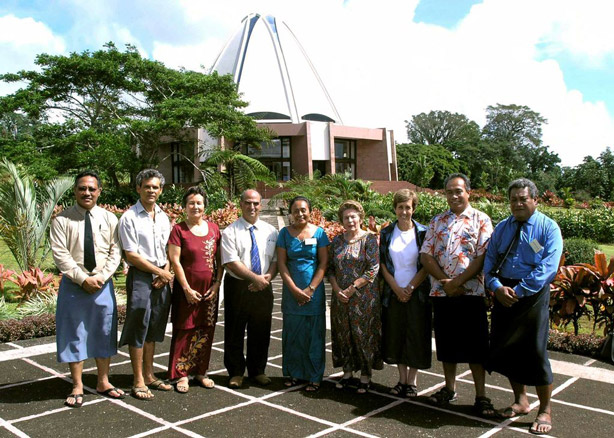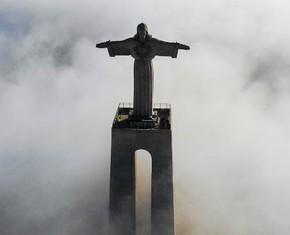The views expressed in our content reflect individual perspectives and do not represent the authoritative views of the Baha'i Faith.
When I became a Baha’i, I encountered one signal difference between the Baha’i community and other religious communities — Baha’is have no clergy.
The Baha’is have no priests, ministers, rabbis, mullas, pandits, lamas, or monks.
So how do the Baha’is administer themselves? Elected administrative bodies called Spiritual Assemblies, freely chosen by the members, primarily guide each Baha’i community. Every adult Baha’i is eligible to be elected and yet, no one can campaign to be elected. The election process, which occurs once a year in each community, is entirely by secret ballot — and during this time, and at all other times, no discussion of possible membership occurs. Baha’i elections are purely democratic – they have no nominations, no campaigning, no speeches and no politicking.
Establishing a Baha’i administration is amazing, unique and very effective. Baha’is simply come together, pray and meditate, and each adult quietly writes down the names of nine adults in their community who they feel have the spiritual and mental requisites to help guide them. These individuals, once elected, have no individual authority. Their authority comes only when they meet as a group, consult together and make unified decisions. They serve voluntarily, without pay. I have never seen such a pure democracy, and it works. Abdu’l-Baha described it like this:
The first condition is absolute love and harmony amongst the members of the assembly. They must be wholly free from estrangement and must manifest in themselves the Unity of God, for they are the waves of one sea, the drops of one river, the stars of one heaven, the rays of one sun, the trees of one orchard, the flowers of one garden. … The second condition: — They must when coming together turn their faces to the Kingdom on High and ask aid from the Realm of Glory. They must then proceed with the utmost devotion, courtesy, dignity, care and moderation to express their views. They must in every matter search out the truth and not insist upon their own opinion, for stubbornness and persistence in one’s views will lead ultimately to discord and wrangling and the truth will remain hidden. The honored members must with all freedom express their own thoughts, and it is in no wise permissible for one to belittle the thought of another, nay, he must with moderation set forth the truth, and should differences of opinion arise a majority of voices must prevail, and all must obey and submit to the majority. … Discussions must all be confined to spiritual matters that pertain to the training of souls, the instruction of children, the relief of the poor, the help of the feeble throughout all classes in the world, kindness to all peoples, the diffusion of the fragrances of God and the exaltation of His Holy Word. Should they endeavor to fulfill these conditions the Grace of the Holy Spirit shall be vouchsafed unto them, and that assembly shall become the center of the Divine blessings, the hosts of Divine confirmation shall come to their aid, and they shall day by day receive a new effusion of Spirit. – Abdu’l-Baha, Baha’i Administration, pp. 21-22.
Perhaps the most revolutionary aspect of the Baha’i Administration is that its members often learn and model that their true role is to be of service to the community as a whole. I’ve seen elected members of Assemblies focus their whole attention on finding, elevating and praising the talents they see in others, counting their membership on an Assembly as an opportunity and duty to help others advance. How profoundly different this is from the way other organizations (religious or not) operate.
When a faith has no clergy, who’s in charge? In a Baha’i community, no one is in charge. Baha’is simply meet regularly and present issues that need attention to their Spiritual Assemblies. At these monthly community gatherings, called Feasts, Baha’is pray and sing and eat and talk together, and the Spiritual Assembly and its committees make reports to the community about ongoing projects, gathering ideas about how to proceed. This innovative style of unified consultation and action — markedly different from most Christian and other religious communities — represents part of the Baha’i plan to unify society with equal effort from all.
For the first time in history, the Founder of a major Faith has established a process that allows and encourages all members of a religious community to participate in decision-making. The process can be challenging, as differing thoughts and views are voiced, but the Baha’i teachings encourage people to share their views fully and frankly — while at the same time helping them learn to detach themselves from these views once they’re expressed. The results can be wonderful. The community becomes engaged, creative solutions appear, and unity and respect among members deepens.

















Comments
Sign in or create an account
Continue with Googleor